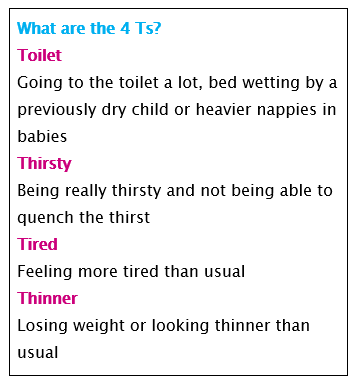Article by Philippa Watkins, National Assembly for Wales Research Service
This week, 12 to 18 June 2016, is Diabetes Week. See our earlier blog post for a picture of diabetes in Wales. While Type 2 diabetes is much more prevalent (this type is often linked to lifestyle factors), there are around 1,500 children with Type 1 diabetes in Wales. Type 1 diabetes is an autoimmune condition where the pancreas doesn’t produce any insulin, and it is one of the most common chronic diseases in childhood. It has a significant impact on health, lifestyle and life expectancy. Incidence of Type 1 diabetes is increasing by about 4% each year, and more quickly in children under five. Though most commonly diagnosed under the age of 15, Type 1 diabetes can occur at any age. More than one in five cases of Type 1 diabetes are diagnosed in people aged over 40. Crucially, a significant number of children – up to 25% - are not diagnosed until they are in diabetic ketoacidosis, a potentially fatal condition, because the early symptoms of diabetes are missed. The Welsh Government’s diabetes delivery plan, published in 2013, identified the importance of ensuring GPs, practice nurses and school nurses are aware of Type 1 diabetes and able to recognise its signs and symptoms. The most recent annual report on the delivery plan highlights the continued need to increase awareness of the symptoms of Type 1 diabetes to enable swifter detection, diagnosis and treatment.
The late diagnosis of type 1 diabetes in children and young people may have devastating consequences, including death, which may have been prevented by an earlier diagnosis. An awareness campaign is being developed between Diabetes UK and the Diabetes Implementation Group to raise awareness of the presentation of type 1 diabetes in primary care and in the community to allow earlier diagnosis.
Diabetes UK’s 4 Ts campaign aims to raise public awareness of the four most common symptoms of Type 1 diabetes, to make sure more children are diagnosed at an early stage: 
Routine screening for Type 1 diabetes?
The importance of timely diagnosis was very clearly highlighted in a recent petition submitted towards the end of the Fourth Assembly. The petition called for mandatory testing for Type 1 diabetes by GPs and primary care health professionals when a child presents with unexplained flu-like symptoms or a general feeling of being unwell, noting that viruses and infections can mask the symptoms of Type 1 diabetes. The petition points out that a finger prick blood test (or urine test) gives instant results and is a low-cost intervention. If such a test indicates that diabetes may be present immediate action can be taken, potentially saving a life. The petition remains open, to be considered by the incoming Fifth Assembly Petitions Committee.
Further reading:
- NHS Direct Wales – Diabetes, type 1
- NICE guidance - Diabetes (type 1 and type 2) in children and young people: diagnosis and management (August 2015)
- Royal College of Paediatrics and Child Health (RCPCH) – National Paediatric Diabetes Audit reports






